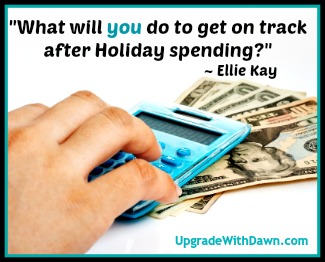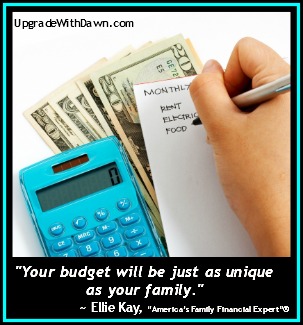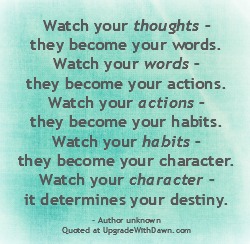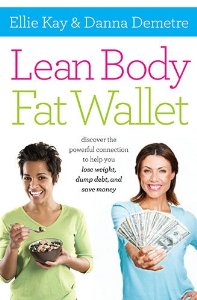8 Ways to Celebrate Savings
Ellie Kay, "America's Family Financial Expert" ®, offers some easy, practical money savers in this Financial UPGRADE to help us become better stewards of our financial resources. With financial wisdom, we can share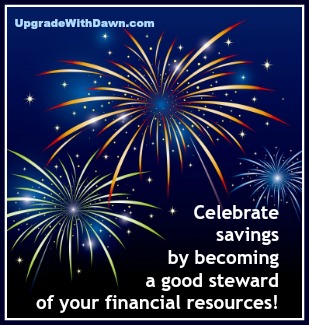 with people in need and support the Kingdom in tangible ways.
with people in need and support the Kingdom in tangible ways.
"Saving money can be a lot easier than you think," Ellie says, "if you know when and where to use the right websites and apps."
I (Dawn) have appreciated Ellie's budgeting and saving tips in the past, and this post has a few ideas I hadn't thought of before!
Ellie continues . . .
I just returned from Barksdale AFB, where we had the latest Heroes at Home Financial Education event. I absolutely love traveling around the country giving these events to our Heroes and Heroes at Home!
There are several apps we always love to recommend (RetailMeNot, TravelZoo, etc.) because they are so easy to use and save money. But one of the things I love is that we are always learning more and more websites and apps through these military families we encounter.
According to James 1:5, if we lack wisdom, we can ask of God who will give it to us.
So let’s CELEBRATE the savings with a few of our favorite ideas, that can help you become wise in the use of your money.
1. Organize your Inbox: Sign up for emails from your favorite stores and brands because they frequently send out sales, deals, and coupons to get you back into the store! But if you don’t want to get 20-30 emails in your inbox every morning, sign up for Unroll.Me. You are able to unsubscribe from lists through this email that you no longer wish to see.
2. Budgeting: Mint is a great site and app for budgeting that I recommend quite frequently. You are also able to pay your bills and see your credit score. Also check out GoodBudget (formerly EEBA) if you are an envelope system family, and for sharing budgets with members of the same household.
3. Gas: Waze is my favorite GPS app out there. It calculates the best route using both major highways and side streets. But one of my favorite features in this app is that it tells you the gas prices for all gas stations in your area. It will also calculate how far off your route each gas station will be. TripTik (by AAA) calculates mileage based on most economic route. GasBuddy is another great tool for calculating a trip cost, gas price charts, and more.
4. Coupons: RetailMeNot is my recommended coupon app for retail stores. But also check out Coupon Sherpa for in store coupons to make sure you are always getting the best deal. If you are a fan of paper coupons, use SnipSnap to take pictures of the coupon and use your phone when it comes time to redeem.
5. Entertainment Tickets: Goldstar is a great site for finding half-priced tickets for shows and concerts in cities around the world. For Veterans and families, take advantage of Veterans Tickets Foundation, which is a great organization that provides free tickets to family members of troops Killed In Action (K.I.A.), our Military and Veterans to sporting events, concerts, performing arts and family activities.
6. Parking: Never overpay for parking in any city when you use BestParking. You are able to search city and airport parking to find and compare the best rates. This is a great tool for both planning trips, and getting a good price on the go.
7. Airfare: Looking for that special price for that trip coming up? Keep an eye out for the best time to fly at the best price with Hopper or BookingBuddy.com.
8. Other Apps – Travelzoo.com
What are some of your favorite ways to be a better steward of God’s resources? Let me know so I can keep spreading the word!
Ellie Kay is a regular expert on national television with ABC NEWS NOW’s Money Matters and Good Money shows. Ellie is also a national radio commentator, a frequent media guest on Fox News, and CNBC, a popular international speaker, and the best-selling author of fourteen books including her newest release, The Little Book of Big Savings (Waterbrook, 2009).
shows. Ellie is also a national radio commentator, a frequent media guest on Fox News, and CNBC, a popular international speaker, and the best-selling author of fourteen books including her newest release, The Little Book of Big Savings (Waterbrook, 2009).
Graphic adapted, Image courtesy of Feelart at FreeDigitalPhotos.net.
 Post a Comment → Posted on
Post a Comment → Posted on  Saturday, July 4, 2015 at 9:00AM
Saturday, July 4, 2015 at 9:00AM  Budgeting,
Budgeting,  Coupons,
Coupons,  Ellie Kay,
Ellie Kay,  Finances,
Finances,  Financial savings,
Financial savings,  Money Savers,
Money Savers,  Saving money,
Saving money,  Upgrade with Dawn Upgrade Your Life
Upgrade with Dawn Upgrade Your Life  Finances,
Finances,  Stewardship
Stewardship 




